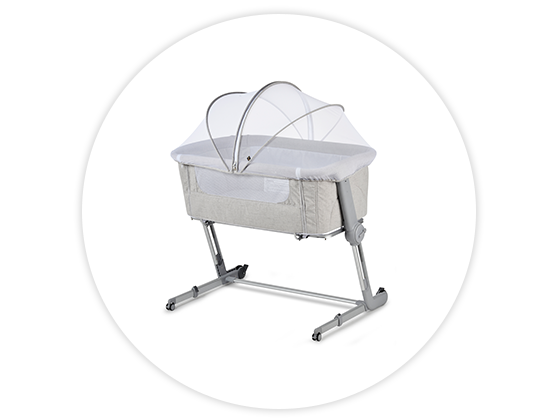Parenting is filled with boundless love and joy, yet it's not without its challenges. Among these challenges, teaching your child anger management is a pivotal task. Understanding the significance of nurturing healthy child anger management skills in children is the first step toward fostering emotional resilience and well-being. In this article, we explore effective ways and invaluable tips to teach child anger management to empower parents in guiding their child’s anger through the complexities of their emotions, fostering harmony and emotional well-being within families.
Understanding Anger in Children
Anger, often misconceived as a negative emotion, is a natural and inevitable part of a child's emotional landscape. It's a signal, a reaction to perceived threats, frustrations, or unmet needs. Recognizing this fundamental truth is crucial in nurturing child anger management. Unmanaged anger in children can manifest in various ways, from tantrums and outbursts to withdrawal and aggression, and can have significant repercussions on their social and emotional development.
Therefore, it's important for parents to grasp the complexities of childhood anger, acknowledging its legitimacy while also understanding the potential consequences of unchecked expression. By embracing proper child anger management, parents can lay the groundwork for teaching children healthy ways to recognize, express, and manage their anger, ultimately fostering resilience and emotional well-being.
Five Ways to Teach Anger Management Skills

Model Healthy Expression of Anger
The first effective step to teach child anger management lies with you. As parents, you serve as powerful role models for your children. Demonstrating healthy ways to express anger sets a crucial example. Instead of resorting to yelling or aggression, practice calmness and assertiveness. Show your child how to take deep breaths, use "I" statements to express feelings, and seek constructive solutions to conflicts.
Teach Relaxation Techniques
Introduce your child to relaxation techniques that can help them cope with anger at the moment. Encourage deep breathing exercises, progressive muscle relaxation, or visualization techniques. Practice these techniques together during calm moments, reinforcing their effectiveness as tools for self-regulation.
Encourage Open Communication
Build an environment where your child feels comfortable expressing their feelings. You can encourage open communication by actively listening to their concerns, validating their emotions, and offering reassurance. By creating a climate of trust and understanding, you empower your child to navigate their anger with honesty and vulnerability.
Practice Problem-Solving Skills
Teach your child how to identify the triggers of their anger and brainstorm alternative ways to respond. Encourage your children to think critically about potential solutions and evaluate their effectiveness. By involving your child in problem-solving, you empower them to take ownership of their emotions and develop proactive strategies for managing anger.
Set Limits and Consequences
Establish clear boundaries as well as the consequences for inappropriate behavior related to anger. Communicate these expectations calmly and consistently, emphasizing the importance of respectful behavior. By holding your child accountable for their actions and providing consistent consequences, you teach them valuable lessons about self-control and responsibility.
Six Tips for Parents

Stay Calm and Patient
In moments of heightened emotion, it's essential for parents to remain calm and patient, serving as steady anchors for their children amidst the storm of anger. Recognize that your child's anger is not a reflection of your parenting but rather a natural response to various triggers and stressors. By maintaining your composure, you model self-control and resilience, demonstrating healthy coping mechanisms in the face of adversity. Take deep breaths, practice mindfulness, and engage in stress-relieving activities to regulate your own emotions and respond to your child with empathy and understanding.
Be Empathetic
Cultivating empathy towards your child's experiences is paramount in building trust and connection. Acknowledge the validity of their emotions, even when their behavior is challenging or disruptive. Take the time to listen actively, seeking to understand the underlying causes of their anger rather than simply reacting to the outward expression. By validating their feelings and demonstrating empathy, you create a safe space where your child feels heard and valued, fostering a sense of security and emotional well-being.
Provide Consistent Discipline
Being consistent is key when it comes to discipline. Clearly state your expectations and the consequences for inappropriate behavior related to anger. Follow through consistently, reinforcing positive behaviors and addressing negative ones promptly. Consistent discipline provides structure and predictability, helping your child understand the boundaries of acceptable behavior and the consequences of crossing them. By upholding consistent standards, you empower your child to internalize self-discipline and accountability, laying the foundation for responsible decision-making and healthy conflict-resolution skills.
Foster a Positive Relationship
It is essential to build a strong and trusting relationship with your child based on mutual respect, affection, and open communication. Spend quality time together engaging in activities that foster connection and shared experiences. Create opportunities for meaningful conversations where your child feels comfortable expressing their thoughts, feelings, and concerns. A positive parent-child relationship serves as a foundation for effective communication, emotional support, and conflict resolution. By nurturing a loving and supportive bond, you establish a sense of security and belonging that helps your child navigate challenges with confidence and resilience.
Seek Professional Help When Needed
Recognize when your child's anger issues require additional support and intervention beyond what you can provide as a parent. Consult with pediatricians, therapists, or counselors who specialize in child anger management. These professionals can offer valuable insights tailored to your child's unique needs, helping you address underlying issues and develop effective coping mechanisms. Don't hesitate to seek help when necessary, as early intervention can prevent further escalation of anger issues and promote positive outcomes for your child's emotional well-being.
Practice Self-Care
Make sure to prioritize your own well-being and self-care to maintain emotional resilience and perspective amidst the demands of parenting. Set aside time for activities that nourish your physical, mental, and emotional health, whether it's exercising, practicing mindfulness, pursuing hobbies, or connecting with supportive friends and family members. Taking care of yourself is not selfish but rather essential for your ability to show up fully present and engaged in your role as a parent. By prioritizing self-care, you replenish your energy reserves, reduce stress, and cultivate the patience and empathy needed to support your child effectively.
Final Thoughts

Parenting involves many aspects, and teaching kids child anger management is important for their emotional well-being. Understanding a child's anger and using compassionate methods can help them deal with their emotions better. By showing them how to express themselves calmly, talking openly, and setting clear rules, parents help kids learn to manage anger.
Taking care of oneself and getting help when needed are also important. Building a solid parent-child relationship based on trust and empathy creates a safe space for kids to talk about their feelings. Together, let us continue nurturing emotionally intelligent and resilient children through proper child anger management training.







